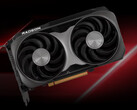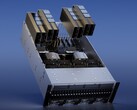Last week, Reuters reported the Chinese cyberspace regulator formally asked Nvidia for an explanation as it feared risk to national security. An Nvidia spokesperson replied, saying “Nvidia does not have 'backdoors' in our chips that would give anyone a remote way to access or control them.”
Now, through a blog post, Nvidia is rejecting the proposal of U.S. lawmakers and simultaneously addressing the concerns of China's cyberspace administrator. In the post, titled “No Backdoors, No Kill Switches, No Spyware” the company argued that embedding such controls would be a “gift to hackers and hostile actors” and would create dangerous, single-point vulnerabilities. Nvidia compared the idea to “buying a car where the dealership keeps a remote control for the parking brake,” calling it an overreaction that would harm U.S. economic and national security interests.
The chipmaker pointed to the failed Clipper Chip initiative from the 1990s as a key lesson, stating that the attempt to create government backdoors in hardware created centralized vulnerabilities and undermined user trust.
Nvidia also rejected comparisons to smartphone features like “remote wipe,” arguing that those are optional software tools controlled by the user, not permanent and uncontrollable hardware flaws. The company concluded by stating that deliberately weakening critical infrastructure should never be a government tool and reiterated its position definitively: “There are no back doors in Nvidia chips. No kill switches. No spyware.”




















